
Muri: The Heart of the Cook Islands' Paradise
Muri is a small village located on the southeastern coast of Rarotonga, the largest of the Cook Islands. Known for its stunning lagoon, white sandy beaches, and lush tropical landscape, Muri is a beloved destination for travelers seeking both relaxation and adventure. The lagoon's crystal-clear waters are perfect for swimming, snorkeling, and kayaking, while the surrounding area offers plenty of opportunities for hiking and exploring the natural beauty of the island. The village itself is a charming mix of local culture and modern amenities. Visitors can explore the vibrant Muri Night Market, where they can sample traditional Cook Islands cuisine, browse local crafts, and enjoy live music. For those interested in learning about the rich history and traditions of the Cook Islands, the nearby Te Vara Nui Village offers cultural shows and interactive experiences. Accommodations in Muri range from luxury resorts to cozy beachfront bungalows, ensuring that every traveler can find the perfect place to stay. Whether you're looking for a romantic getaway, a family vacation, or an adventurous solo trip, Muri has something to offer everyone. The warm hospitality of the locals, combined with the breathtaking natural scenery, makes Muri a must-visit destination in the Cook Islands.
Local tips in Muri
- Visit the Muri Night Market on Wednesday, Thursday, Saturday, and Sunday evenings for local food and crafts.
- Rent a kayak or stand-up paddleboard to explore the Muri Lagoon and its motus (small islands).
- Don't miss the cultural performances and village tours at Te Vara Nui Village.
- Book a snorkeling tour to see the colorful marine life in the lagoon.
- Try the local dish Ika Mata, a marinated raw fish salad, at one of the beachside cafes.
Muri: The Heart of the Cook Islands' Paradise
Muri is a small village located on the southeastern coast of Rarotonga, the largest of the Cook Islands. Known for its stunning lagoon, white sandy beaches, and lush tropical landscape, Muri is a beloved destination for travelers seeking both relaxation and adventure. The lagoon's crystal-clear waters are perfect for swimming, snorkeling, and kayaking, while the surrounding area offers plenty of opportunities for hiking and exploring the natural beauty of the island. The village itself is a charming mix of local culture and modern amenities. Visitors can explore the vibrant Muri Night Market, where they can sample traditional Cook Islands cuisine, browse local crafts, and enjoy live music. For those interested in learning about the rich history and traditions of the Cook Islands, the nearby Te Vara Nui Village offers cultural shows and interactive experiences. Accommodations in Muri range from luxury resorts to cozy beachfront bungalows, ensuring that every traveler can find the perfect place to stay. Whether you're looking for a romantic getaway, a family vacation, or an adventurous solo trip, Muri has something to offer everyone. The warm hospitality of the locals, combined with the breathtaking natural scenery, makes Muri a must-visit destination in the Cook Islands.
When is the best time to go to Muri?
Iconic landmarks you can’t miss
Muri Night Markets
Experience Rarotonga's vibrant Muri Night Markets: a culinary and cultural feast under the stars in the heart of Muri Beach Village.
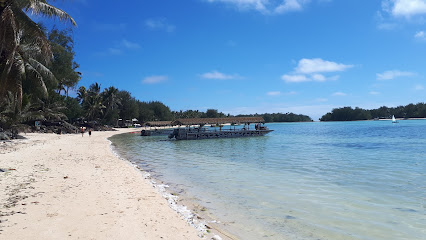
The Mooring Fish Cafe
Discover the taste of the islands at The Mooring Fish Cafe, where fresh seafood meets stunning views in the heart of Ngatangiia District.
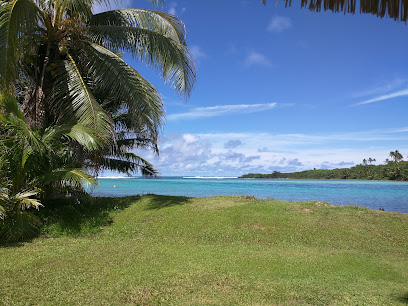
Koka Lagoon Cruises
Discover Rarotonga's Muri Lagoon with Koka Cruises: snorkeling, culture, and island feasts await!
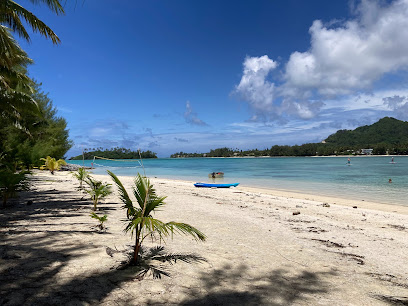
Te Vara Nui Village
Experience Rarotonga's vibrant culture at Te Vara Nui Village: immersive tours, spectacular shows, and authentic traditions in a stunning Muri Beach setting.
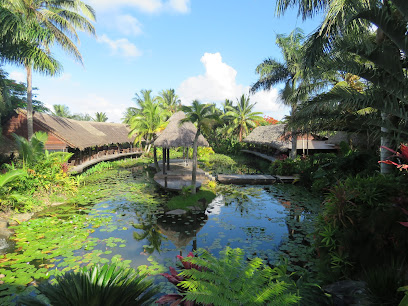
Maire Nui Gardens and Cafe
Explore Rarotonga's lush Maire Nui Gardens: A tropical paradise with vibrant flora, tranquil lily ponds, and delightful garden-to-table dining.
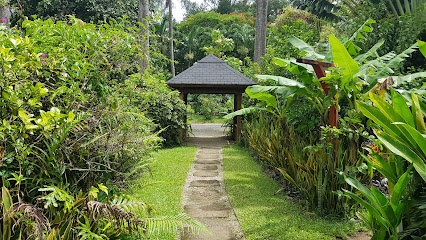
Muri Beach Club Hotel Rarotonga
An exclusive adults-only beachfront resort on Rarotonga's stunning Muri Lagoon, offering tranquility, Polynesian charm, and unforgettable experiences.

Raro Buggy Tours
Experience Rarotonga's wild side with a thrilling buggy tour through its hidden landscapes and historical sites. Self-drive adventure awaits!
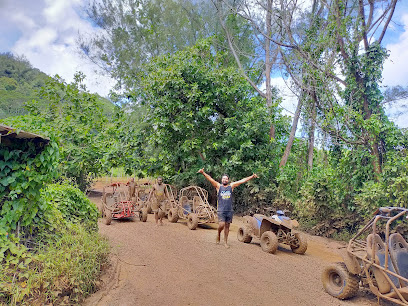
Rarotonga Sailing Club
Experience Rarotonga's sailing culture at this Muri Beach gem, offering stunning views, sailing programs, and delicious beachfront dining.
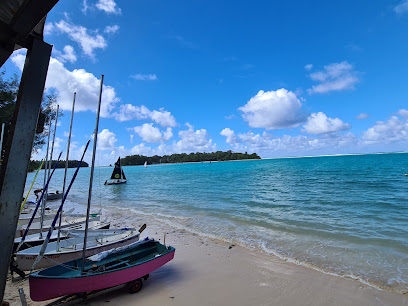
LBV Bakery & Cafe
Delightful cafe in Muri, Rarotonga, offering fresh pastries, delicious meals, and a vibrant atmosphere. A must-visit for breakfast and brunch lovers!
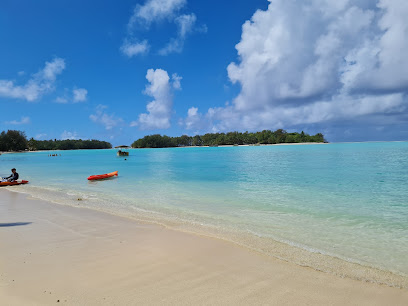
Te Ara Cook Islands Museum of Cultural Enterprise
Immerse yourself in Cook Islands culture: history, traditions, and local crafts at Te Ara Museum in beautiful Muri, Rarotonga.
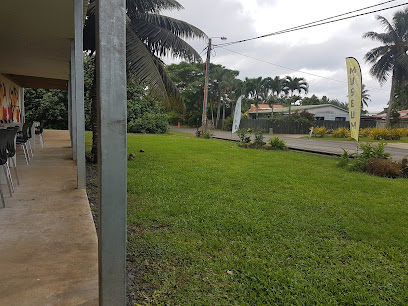
Te Rua Manga (The Needle)
Hike to Rarotonga's iconic Te Rua Manga (The Needle) for breathtaking views and a connection to the island's natural and cultural history.
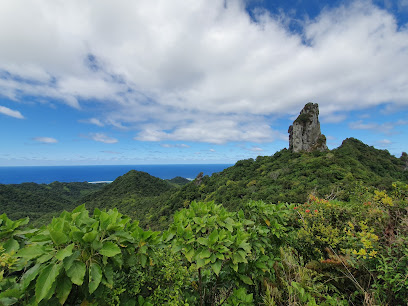
Wigmore's Waterfall
Discover Rarotonga's serene Wigmore's Waterfall: a refreshing jungle escape with a cool swimming pool and tranquil atmosphere in the Takitumu District.
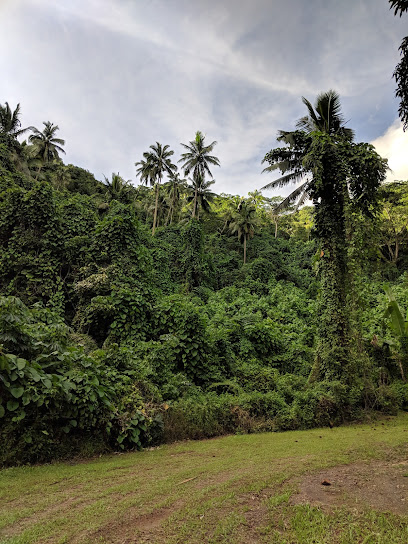
Muri Beach
Experience the allure of Muri Beach: turquoise waters, white sands, thrilling water sports, and vibrant island culture await in Rarotonga.
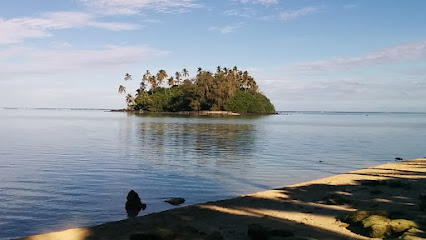
Muri Beachcomber
Experience beachfront bliss at Muri Beachcomber: comfortable self-catering accommodations in the heart of Muri, Rarotonga.

Muri Beach Resort
Experience Rarotonga's beauty at Muri Beach Resort: Island villas, stunning lagoon views, water sports, and tranquil relaxation await.

Unmissable attractions to see
Captain Tamas Lagoon Cruizes
Explore Rarotonga's stunning Muri Lagoon with Captain Tama's Cruizes: snorkeling, BBQ, and island adventures await!
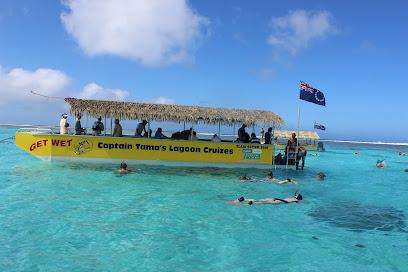
Rarotonga
Discover the enchanting island of Rarotonga, where lush landscapes, vibrant culture, and crystal-clear waters await every traveler.
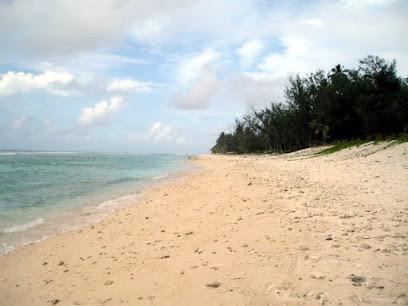
Maire Nui Gardens and Cafe
Discover the beauty of Maire Nui Gardens and Cafe, a botanical paradise in Rarotonga, where nature and culinary delights come together in harmony.
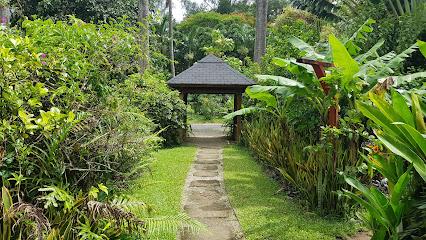
Shipwreck Hut Bar & Restaurant & Accomodation
Experience the best of Rarotonga's beachside vibes at Shipwreck Hut: delicious food, live music, stunning sunsets, and unforgettable memories.
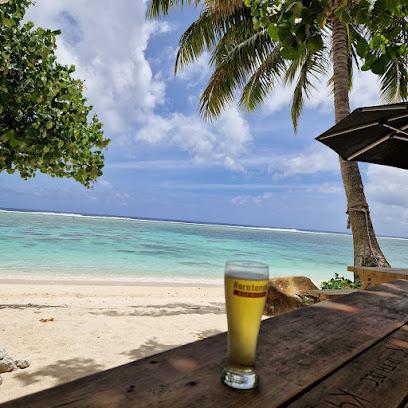
Te Ara Cook Islands Museum of Cultural Enterprise
Explore the vibrant heritage and cultural treasures of the Cook Islands at Te Ara Museum, a must-visit destination in Muri Beach.
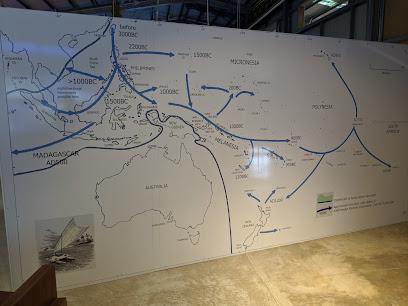
Ariki Adventures
Discover exhilarating adventures in the heart of the Cook Islands with Ariki Adventures, where nature meets excitement and culture.
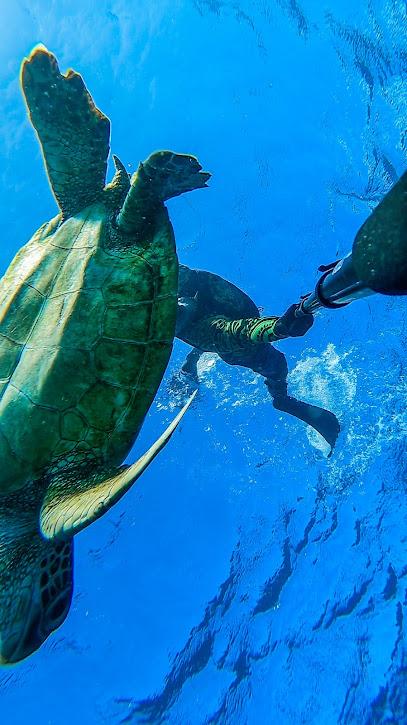
Te Rua Manga (The Needle)
Hike to Rarotonga's iconic Te Rua Manga (The Needle) for breathtaking panoramic views and a taste of Cook Islands legend.
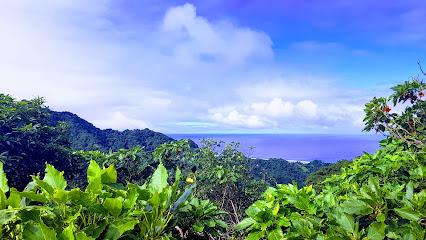
Muri Beach
Experience the allure of Rarotonga at Muri Beach: where turquoise waters meet white sands, offering adventure, relaxation, and cultural immersion.
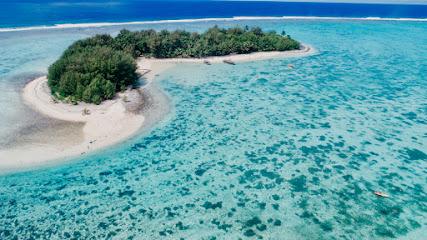
Black Rock
Explore the stunning natural beauty and rich cultural history of Black Rock, a must-visit attraction in Avarua, Cook Islands.
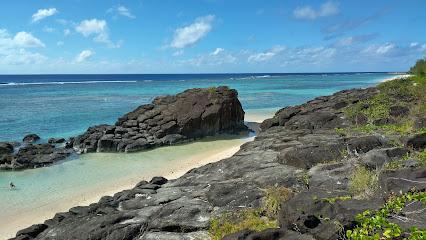
Raro Reef Sub
Explore the vibrant underwater life and shipwrecks of Avarua with Raro Reef Sub, an unforgettable submarine adventure in the Cook Islands.
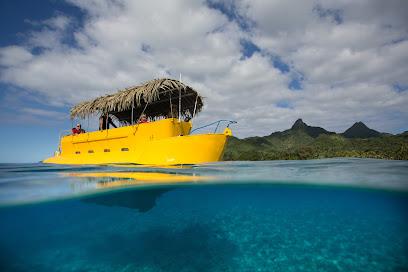
Cook Islands Library & Museum
Explore Cook Islands history and culture through fascinating artifacts, rare books, and historical exhibits in the heart of Avarua.
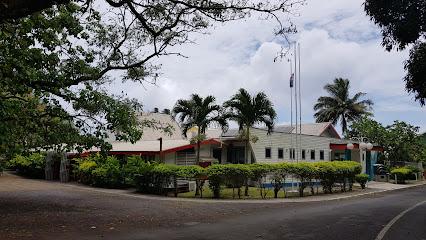
Muri Lagoon
Experience Rarotonga's iconic Muri Lagoon: turquoise waters, white sands, motu isles, snorkeling, cruises, and Polynesian culture.
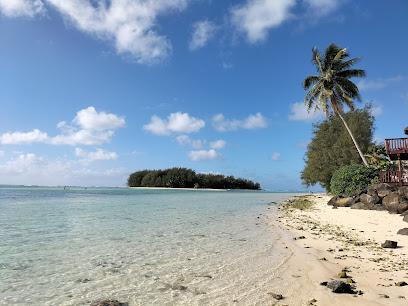
Cook Islands Tours
Experience the breathtaking beauty and rich culture of the Cook Islands with Cook Islands Tours, your gateway to island adventures.
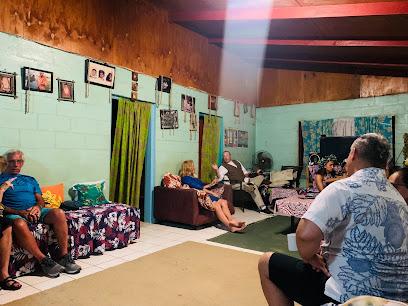
Taputapuatea
Explore the sacred grounds of Taputapuatea in Avarua, a pivotal site in Polynesian culture and heritage, surrounded by breathtaking natural beauty.
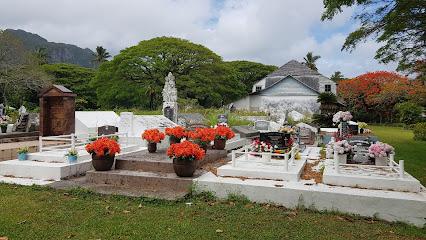
Essential places to dine
Trader Jacks
Discover culinary delights at Trader Jacks in Avarua - where grill meets island vibes amidst stunning ocean views.
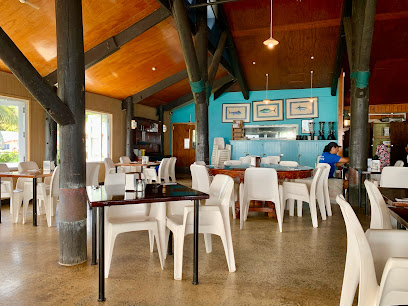
Charlie's Raro
Experience exquisite local cuisine and vibrant nightlife at Charlie's Raro in Takitumu District – a true culinary delight in Rarotonga.
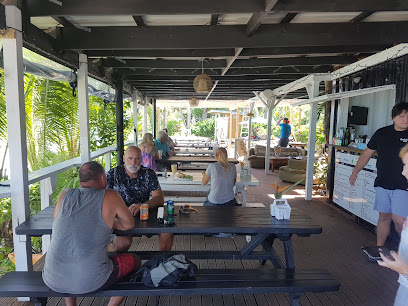
The Mooring Fish Cafe
Experience fresh seafood delights at The Mooring Fish Cafe in Ngatangiia District – where every bite tells a story of local flavor and coastal charm.
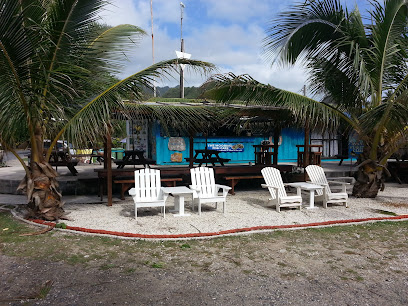
Vili's Burger Joint
Discover delicious gourmet burgers at Vili's Burger Joint in Ngatangiia District – where taste meets tropical vibes!
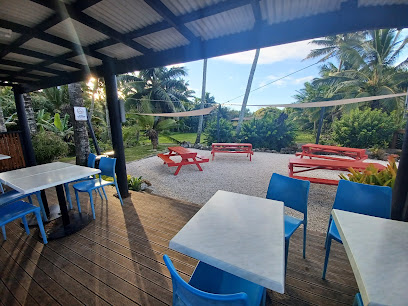
Nautilus Resort Rarotonga
Experience luxury and relaxation at Nautilus Resort Rarotonga, where stunning views meet exquisite dining amidst tropical paradise.

Tamarind House Restaurant & Ukulele Bar
Discover the vibrant flavors of the Cook Islands at Tamarind House Restaurant & Ukulele Bar - where culinary artistry meets tropical paradise.
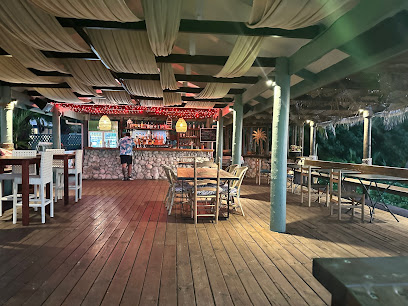
Vaima Restaurant and Bar
Discover culinary bliss at Vaima Restaurant and Bar in Takitumu District - where stunning views meet delicious local cuisine.
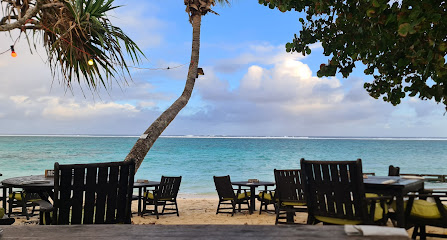
The Waterline Restaurant and Outrigger Beach Bar
Experience exquisite dining with breathtaking ocean views at The Waterline Restaurant & Outrigger Beach Bar in Rarotonga.
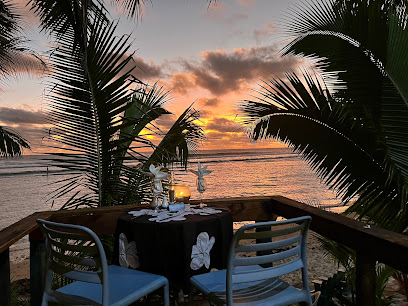
Rarotonga Sailing Club
Discover the flavors of Rarotonga at Rarotonga Sailing Club—where stunning ocean views meet exquisite local cuisine.
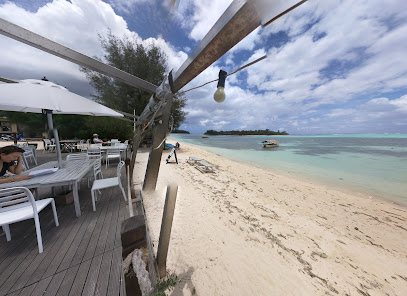
Antipodes rarotonga
Experience authentic Cook Islands cuisine at Antipodes Rarotonga - where every meal tells a story amidst breathtaking views.
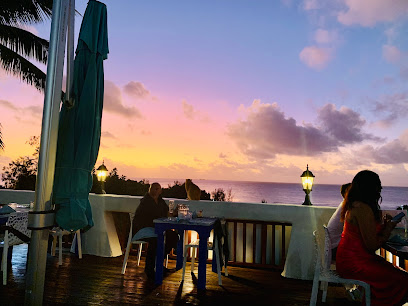
Shipwreck Hut Bar & Restaurant & Accomodation
Discover delectable grilled dishes and vibrant live music at Shipwreck Hut Bar & Restaurant in Arorangi District, your ultimate island getaway.
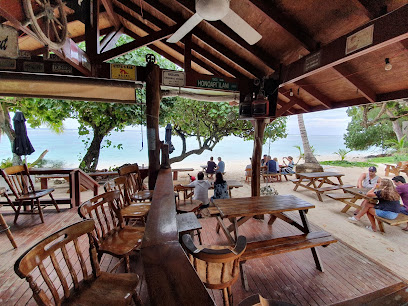
Spaghetti House Restaurant
Experience authentic Italian cuisine at Spaghetti House Restaurant in Arorangi District - where every meal is a delicious adventure.
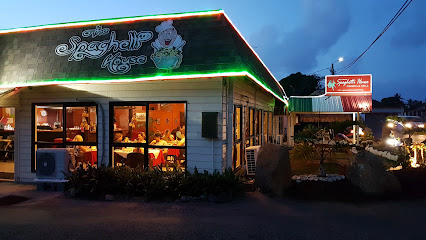
Flying Turtle Cafe
Discover fresh local flavors at Flying Turtle Cafe in Rarotonga – where delicious food meets stunning island views.
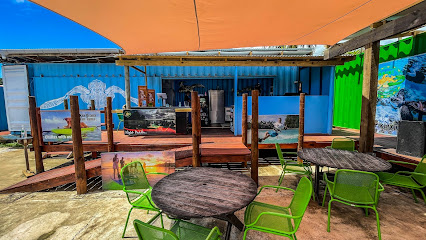
Kikau Hut
Discover authentic Cook Islands flavors at Kikau Hut, where fresh ingredients meet stunning views in Rarotonga's Arorangi District.
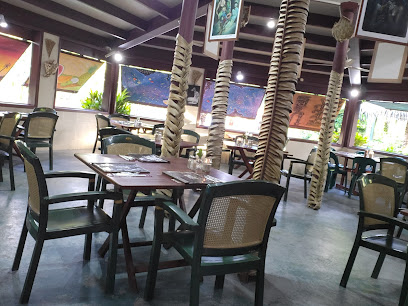
On the Beach Bar and Restaurant
Discover culinary bliss at On the Beach Bar and Restaurant in Arorangi District - where exquisite flavors meet stunning ocean views.
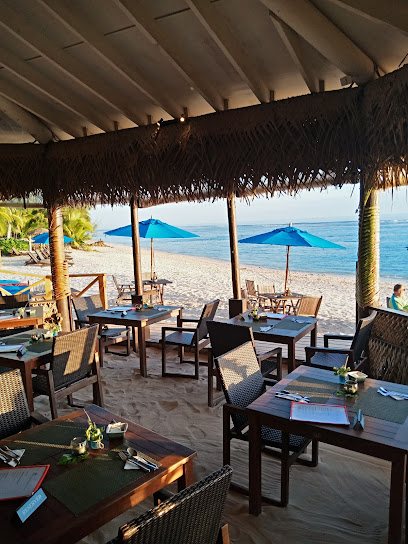
Markets, malls and hidden boutiques
Ollie's Surf Gear
Discover the vibrant surf culture at Ollie's Surf Gear, Avarua's premier destination for quality beachwear and accessories.
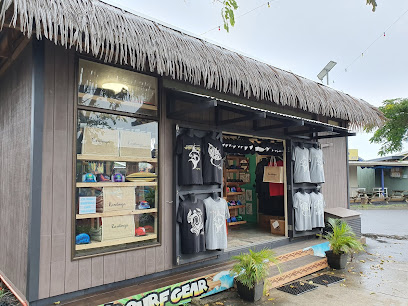
Island Craft Ltd
Discover the essence of the Cook Islands at Island Craft Ltd, where local artistry meets unique souvenirs in Avarua.
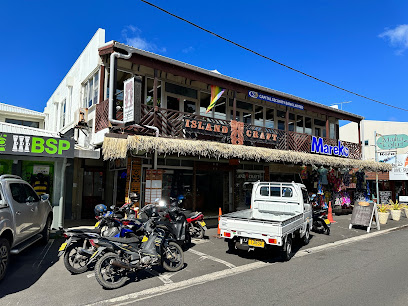
The T-Shirt Factory
Explore the vibrant styles of The T-Shirt Factory in Avarua, where local culture meets unique fashion in a tropical paradise.
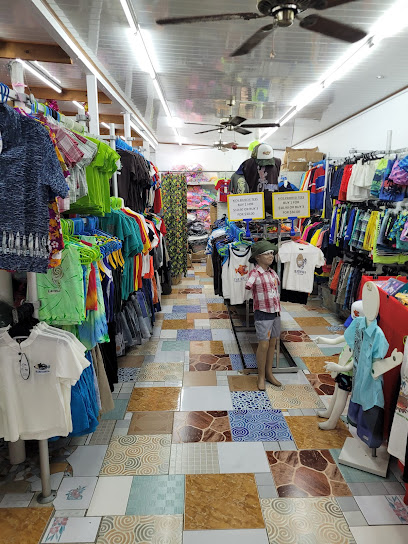
Cooks Fudge Factory/ Perfumes of Rarotonga
Discover the delightful flavors and fragrances of Cooks Fudge Factory in Rarotonga, a perfect destination for unique gifts and sweet treats.
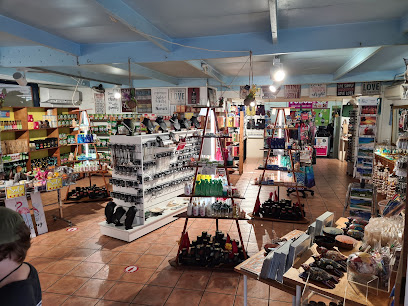
On the Juice Bar
Discover the vibrant flavors of On the Juice Bar, a delightful coffee shop in Ngatangiia District, offering refreshing drinks in a cozy atmosphere.
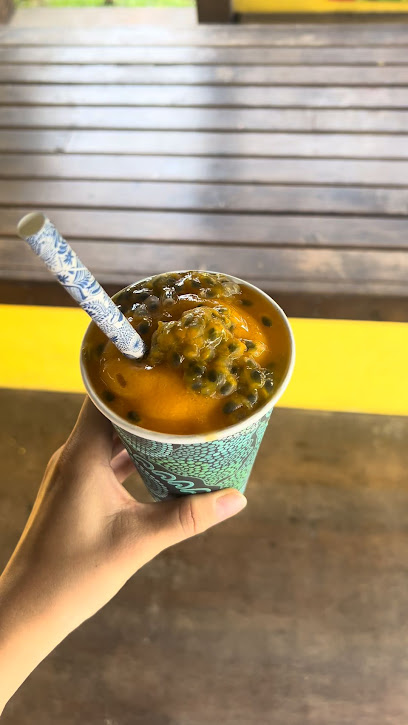
Vonnias Warehouse
Explore Vonnias Warehouse in Avarua for a unique shopping experience filled with local culture and vibrant goods in the heart of the Cook Islands.
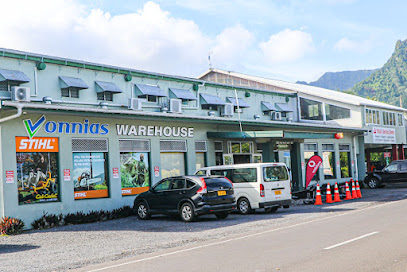
Tuki's Pareu
Shop at Tuki's Pareu for unique clothing that embodies the spirit of the Cook Islands, perfect for souvenirs or refreshing your wardrobe.
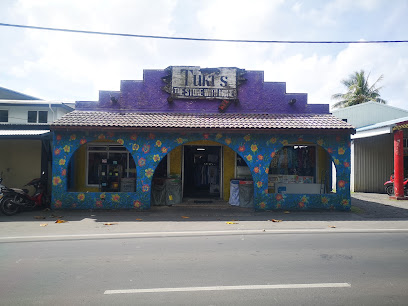
TEM Store and Takeaways
Explore the flavors of the Cook Islands at TEM Store and Takeaways, your go-to spot for local cuisine and essential groceries.
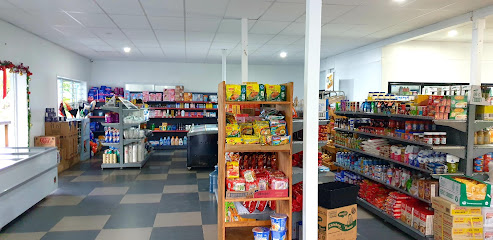
Tivaevae Collectables Cultural Gift Shop
Explore Tivaevae Collectables for authentic Cook Islands gifts, showcasing local craftsmanship and vibrant cultural heritage.
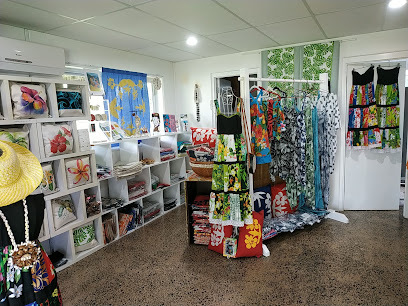
Mareko Island Creations
Explore Mareko Island Creations in Avarua for authentic Cook Islands gifts, showcasing local artistry and vibrant cultural heritage.
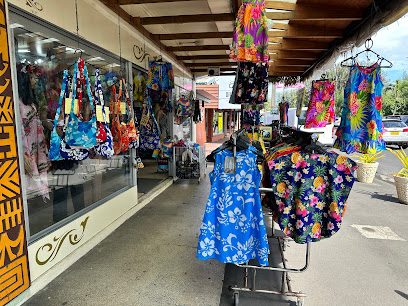
Paradise Bakeshop Ltd
Indulge in heavenly pastries and baked delights at Paradise Bakeshop Ltd in the scenic Ngatangiia District, a must-visit for all dessert lovers.
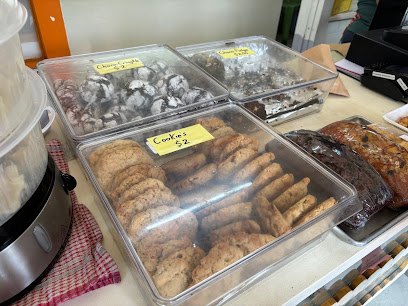
The Gift Shop
Discover unique treasures and local crafts at The Gift Shop in Avarua, the perfect place for memorable souvenirs from the Cook Islands.
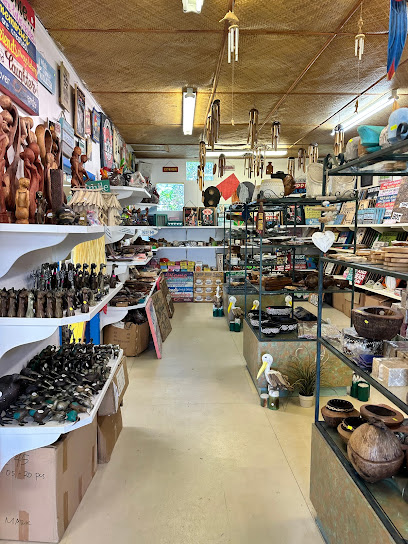
Rito Cook Islands
Explore Rito Cook Islands for the finest health and beauty products that celebrate local ingredients and promote wellness during your tropical getaway.
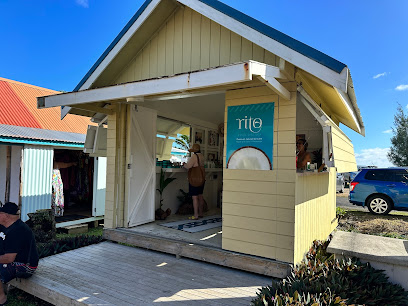
TEM Liquor Store
Explore local and international beverages at TEM Liquor Store in Takitumu District, a must-visit for tourists seeking a taste of the region.
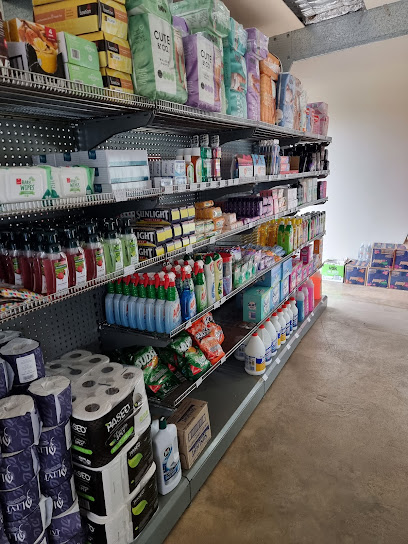
id.CK
Explore the vibrant local fashion at id.CK in Avarua, showcasing handcrafted clothing that embodies the spirit of the Cook Islands.
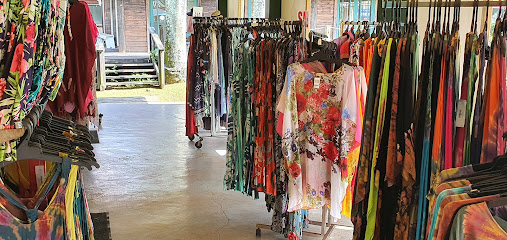
Essential bars & hidden hideouts
Charlie's Raro
Immerse yourself in Rarotonga's culinary delights at Charlie's Raro, where local flavors meet a vibrant atmosphere.
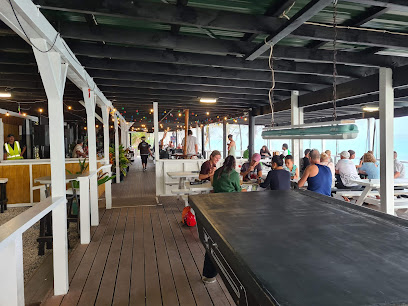
The Mooring Fish Cafe
Experience the best fish and chips in Ngatangiia District at The Mooring Fish Cafe, where fresh seafood meets breathtaking views.
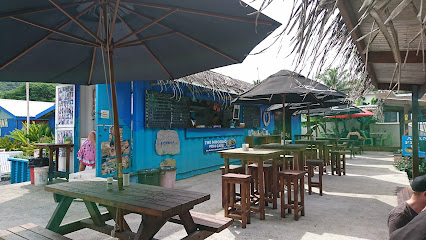
Vaima Restaurant and Bar
Experience the vibrant culinary scene at Vaima Restaurant and Bar, where local flavors meet stunning views in Takitumu District.
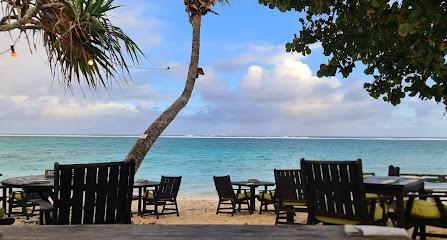
The Waterline Restaurant and Outrigger Beach Bar
Discover tropical paradise dining at The Waterline Restaurant and Outrigger Beach Bar, where stunning views and delicious local cuisine await.
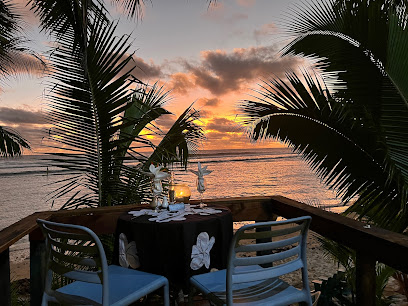
Rarotonga Sailing Club
Savor fresh island cuisine at Rarotonga Sailing Club, where stunning views meet the heart of the Cook Islands' sailing culture.
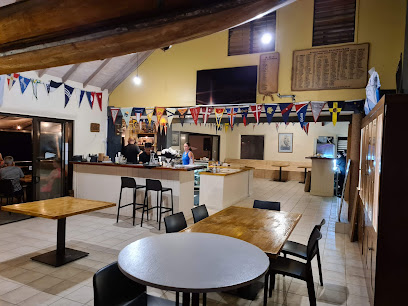
Shipwreck Hut Bar & Restaurant & Accomodation
Discover the vibrant charm of Shipwreck Hut Bar & Restaurant, where delicious grill cuisine meets enchanting live music in a tropical paradise.
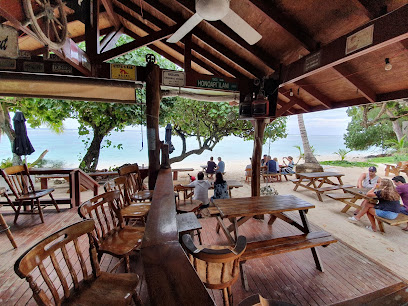
La Casita Rarotonga Mexican Cafe
Discover the vibrant flavors of Mexico at La Casita Rarotonga, where every bite tells a delicious story in a tropical paradise.
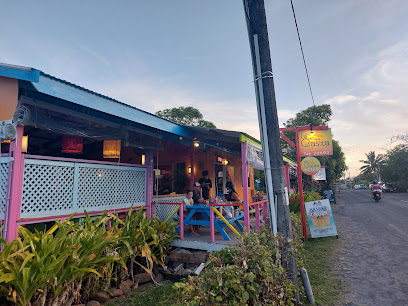
Rehab
Experience the vibrant nightlife of Avarua at Rehab, a lively bar and disco club where the fun never stops!
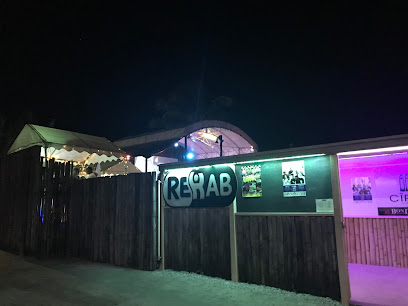
The Rickshaw Rarotonga
Experience the vibrant culinary scene at The Rickshaw Rarotonga, where local flavors meet tropical charm in the heart of the Cook Islands.
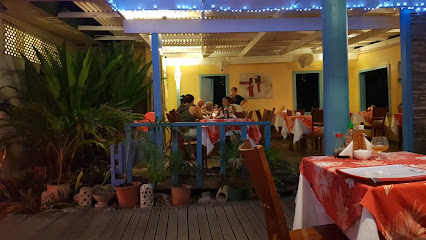
Laguna on Muri Restaurant and Bar
Experience culinary bliss at Laguna on Muri, where succulent steaks meet breathtaking lagoon views in a tropical paradise.
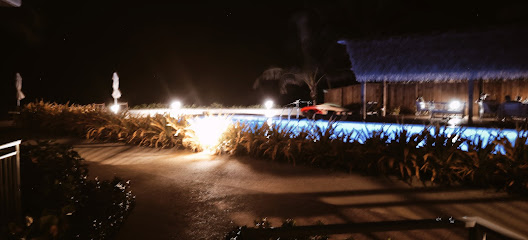
Takitumu Tapas
Discover the flavors of the Cook Islands at Takitumu Tapas, where local ingredients meet the art of tapas in a charming setting.
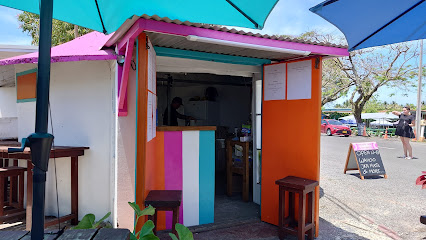
Mai’i Cafe & Bar
Experience the vibrant culture and flavors of the Cook Islands at Mai’i Cafe & Bar, where every sip and bite tells a story.
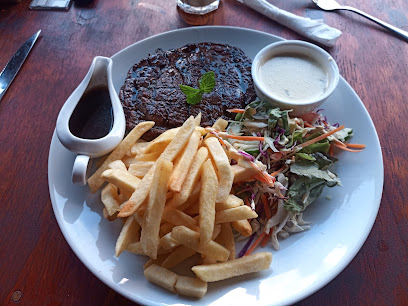
Roadhouse Bar & Restaurant
Experience the vibrant atmosphere and delicious cuisine at Roadhouse Bar & Restaurant in Arorangi District, where fun and flavor collide.
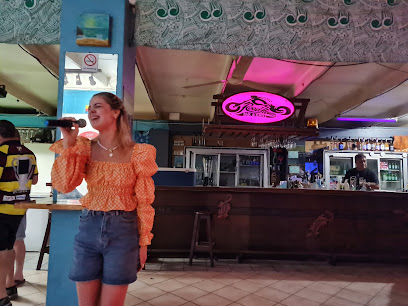
Hula Bar
Discover the lively Hula Bar in Rarotonga, where vibrant nightlife, refreshing drinks, and great music come together for an unforgettable experience.
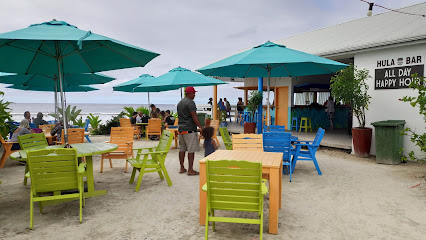
On the Juice Bar
Experience the refreshing flavors of On the Juice Bar in Ngatangiia District, where tropical vibes meet exceptional coffee and smoothies.
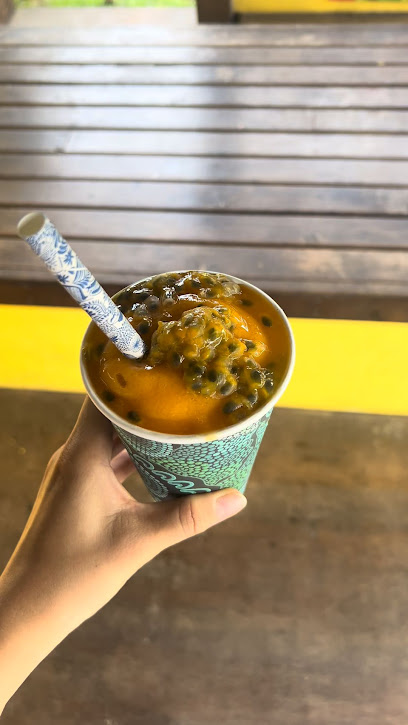
Local Phrases
-
- HelloKia Orana
[Kee-ah O-rah-nah] - GoodbyeAere ra
[I-ree rah] - YesE
[Eh] - NoKare
[Kah-reh] - Please/You're welcomeMeitaki
[May-tah-kee] - Thank youMeitaki
[May-tah-kee] - Excuse me/SorryAroa
[Ah-roh-ah] - How are you?Pehea to tu?
[Peh-he-ah toh too?] - Fine. And you?Maitai. Koe?
[Mai-tai. Ko-eh?] - Do you speak English?E koe e kai i te reo Maori?
[Eh ko-eh eh kai ee teh reh-oh Mah-oh-ree?] - I don't understandKare au e unu
[Kah-reh ow eh oo-noo]
- HelloKia Orana
-
- I'd like to see the menu, pleaseKia aere mai au kia kite i te manu, meitaki
[Kee-ah I-ree my ow kee-ah kee-tay ee teh mah-noo, may-tah-kee] - I don't eat meatKare au e kai i te kai
[Kah-reh ow eh kai ee teh kai] - Cheers!Manuia!
[Mah-noo-ee-ah] - I would like to pay, pleaseKia aere mai au kia utu, meitaki
[Kee-ah I-ree my ow kee-ah oo-too, may-tah-kee]
- I'd like to see the menu, pleaseKia aere mai au kia kite i te manu, meitaki
-
- Help!Ara!
[Ah-rah!] - Go away!Haere atu!
[High-reh ah-too!] - Call the Police!Taki ki te kavamani!
[Tah-kee kee teh kah-vah-mah-nee!] - Call a doctor!Taki ki te vairakau!
[Tah-kee kee teh vah-ee-rah-kow!] - I'm lostAu i kitea
[Ow ee kee-tay-ah] - I'm illAu e mare
[Ow eh mah-reh]
- Help!Ara!
-
- I'd like to buy...Kia aere mai au kia hoko...
[Kee-ah I-ree my ow kee-ah ho-koh...] - I'm just lookingE tika ua au e riro
[Eh tee-kah oo-ah ow eh ree-roh] - How much is it?E aha te moni?
[Eh ah-hah teh moh-nee?] - That's too expensiveE teitei te moni
[Eh teh-ee-teh teh moh-nee] - Can you lower the price?E taea e koe te iti i te moni?
[Eh tah-eh-ah eh ko-eh teh ee-tee ee teh moh-nee?]
- I'd like to buy...Kia aere mai au kia hoko...
-
- What time is it?Kia aha te wa?
[Kee-ah ah-hah teh wah?] - It's one o'clockTe tahi te ora
[Teh tah-hee teh oh-rah] - Half past (10)Te toru tekau
[Teh toh-roo teh-kow] - MorningAtapō
[Ah-tah-poh] - AfternoonAuē
[Ow-eh] - EveningPō
[Poh] - YesterdayRānei
[Rah-neh-ee] - TodayĀianei
[Ah-yah-neh-ee] - TomorrowĀpōpō
[Ah-poh-poh] - 1Tahi
[Tah-hee] - 2Rua
[Roo-ah] - 3Toru
[Toh-roo] - 4Whā
[Fah] - 5Rima
[Ree-mah] - 6Ono
[Oh-noh] - 7Whitu
[Fee-too] - 8Waru
[Wah-roo] - 9Iwa
[Ee-wah] - 10Tekau
[Teh-kow]
- What time is it?Kia aha te wa?
-
- Where's a/the...?Kei hea te...
[Kay heh-ah teh...] - What's the address?Ko te tuanui
[Koh teh too-ah-noo-ee] - Can you show me (on the map)?E taea e koe te whakaatu mai i ahau (i runga i te mahere)?
[Eh tah-eh-ah eh ko-eh teh fah-kah-ah-too my ee ah-how (ee roo-ngah ee teh mah-heh-ray)?] - When's the next (bus)?Āhea te roa (kāinga)?
[Ah-he-ah teh roh-ah (kah-ee-ngah)?] - A ticket (to ....)He tiketi (ki ....)
[Heh tee-keh-tee (kee ....)]
- Where's a/the...?Kei hea te...
History of Muri
-
The earliest settlers of Muri, like much of the Cook Islands, were Polynesians who arrived around 800-1000 AD. These early navigators utilized their exceptional seafaring skills to spread across the Pacific, establishing communities on the islands. They brought with them a rich culture, which included traditional arts, fishing techniques, and agricultural practices.
-
In 1773, Captain James Cook and his crew arrived in the Cook Islands during their second voyage to the Pacific. While they did not make landfall in Muri, their presence marked the beginning of European contact with the region. Cook's voyages were instrumental in mapping and documenting the islands, which eventually led to increased interest from European explorers and missionaries.
-
The 19th century saw the arrival of Christian missionaries, particularly from the London Missionary Society. In 1823, John Williams, a prominent missionary, visited the Cook Islands and played a significant role in converting the local population to Christianity. This period marked significant cultural changes, with the introduction of Western education, new agricultural practices, and the establishment of churches.
-
In 1901, the Cook Islands, including Muri, were annexed by New Zealand, becoming a part of the British Empire. This event marked the beginning of a new administrative era, with New Zealand overseeing the islands' governance. The annexation brought about infrastructural developments and increased interaction with the broader Pacific region.
-
The mid-20th century saw the gradual development of tourism in Muri. Recognized for its stunning lagoon and beaches, Muri began to attract visitors from around the world. The construction of resorts, restaurants, and other tourist facilities transformed the area, making it a key destination within the Cook Islands. This period also saw efforts to preserve the local culture and environment amid growing tourist numbers.
-
In recent decades, there has been a strong movement towards cultural revitalization in Muri. Efforts have been made to revive traditional practices, languages, and crafts. Events such as cultural festivals, dance performances, and the promotion of traditional cuisine have become integral to Muri's cultural landscape. This resurgence not only attracts tourists but also strengthens the community's connection to its heritage.
Muri Essentials
-
Muri is located on the southeastern coast of Rarotonga, the largest of the Cook Islands. The main gateway to Rarotonga is the Rarotonga International Airport (RAR), which receives flights from major hubs such as Auckland, Sydney, and Los Angeles. From the airport, Muri is approximately a 20-minute drive. Taxis, shuttle buses, and rental cars are available at the airport for transportation to Muri.
-
Getting around Muri is relatively easy. The area is small enough to explore on foot or by bicycle. Rental bikes and scooters are popular options for tourists. For longer trips around Rarotonga, consider renting a car or using the local bus service, which operates clockwise and anti-clockwise routes around the island. Taxis are also readily available, but they can be more expensive.
-
The official currency of the Cook Islands is the New Zealand Dollar (NZD). Credit cards are widely accepted in hotels, restaurants, and shops in Muri. However, it's advisable to carry some cash for smaller vendors and markets. ATMs are available in Muri and other parts of Rarotonga, so withdrawing cash is convenient.
-
Muri is generally a safe destination for tourists. However, like any travel destination, it is important to take standard precautions. Avoid leaving valuables unattended on the beach or in your vehicle. Although Rarotonga has a low crime rate, petty theft can occur. Stick to well-lit areas at night and inform your accommodation provider of any concerns.
-
In case of emergency, dial 999 for immediate assistance. The local police station is located in Avarua, the capital of Rarotonga, and there are medical facilities available on the island. It is recommended to have travel insurance that covers medical emergencies. For minor health issues, there are pharmacies in Muri where you can purchase over-the-counter medications.
-
Fashion: Do dress modestly, especially when visiting villages and religious sites. Avoid wearing beachwear away from the beach. Religion: Do respect local customs and traditions. Remove your shoes before entering homes and churches. Public Transport: Do be respectful and greet the bus driver. Don't bring large luggage on public buses. Greetings: Do greet people with a friendly 'Kia Orana'. Eating & Drinking: Do try local delicacies such as ika mata (raw fish salad). Don't refuse food or drink offerings graciously, as it is considered impolite.
-
To experience Muri like a local, visit the Muri Night Market where you can enjoy a variety of local dishes and interact with residents. Take part in a lagoon cruise to see marine life and learn about the history of the area. Engage with locals and participate in cultural activities such as traditional dance performances and cooking classes to gain a deeper understanding of Cook Islands culture.
Trending Landmark in Muri
-
Muri Night Markets
-
The Mooring Fish Cafe
-
Koka Lagoon Cruises
-
Te Vara Nui Village
-
Maire Nui Gardens and Cafe
-
Muri Beach Club Hotel Rarotonga
-
Raro Buggy Tours
-
Rarotonga Sailing Club
-
LBV Bakery & Cafe
-
Te Ara Cook Islands Museum of Cultural Enterprise
-
Te Rua Manga (The Needle)
-
Wigmore's Waterfall
-
Muri Beach
-
Muri Beachcomber
-
Muri Beach Resort
Nearby Cities to Muri
-
Things To Do in Ngatangiia
-
Things To Do in Matavera
-
Things To Do in Takitumu
-
Things To Do in Avatiu
-
Things To Do in Avarua
-
Things To Do in Arorangi
-
Things To Do in Nikao
-
Things To Do in Maupiti
-
Things To Do in Bora Bora
-
Things To Do in Raiatea
-
Things To Do in Huahine
-
Things To Do in Moorea
-
Things To Do in Papeete
-
Things To Do in Tahiti
-
Things To Do in Tetiaroa








